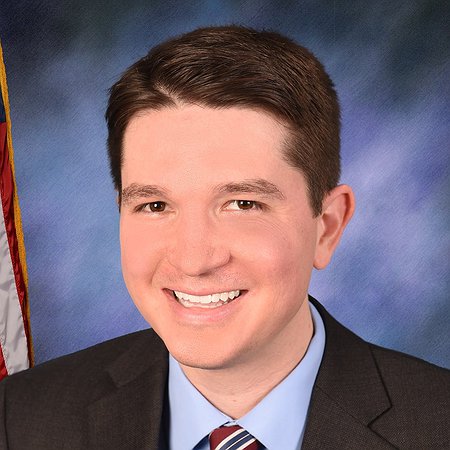Springfield Police Chief Kenneth Scarlette Fearmongers About Pretrial Fairness Act
Springfield Police Chief Kenneth Scarlette told the Illinois Times that he believes the Pretrial Fairness Act may embolden “criminals” when they realize they may be less likely to be arrested or held in jail on certain charges.
The Briefing

Springfield Police Chief Kenneth Scarlette told the Illinois Times that he believes the Pretrial Fairness Act may embolden “criminals” when they realize they may be less likely to be arrested or held in jail on certain charges. These claims ignore the wealth of evidence from numerous jurisdictions showing that pretrial jailing can be reduced without harming public safety.
Just like Illinois’ existing bail statutes, the Pretrial Fairness Act establishes standards that judges must use when deciding whether someone may be denied pretrial release. A judge must find that one of two things is true: either that the person poses a specific, real, and present threat to the safety of any person or persons (the “safety standard”) or that the person has a high likelihood of willful flight (the “willful flight standard”).
Safety Standard
Despite claims from law enforcement and prosecutors that the Pretrial Fairness Act’s safety standard is too high, the new standard is not substantially different than the standard that prosecutors currently have to prove if they want to deny someone pretrial release—that standard under current law reads, “a real and present threat to the physical safety of any person or persons.” Prosecutors around the state can and do hold hearings to deny people release under current law, using the standard which has been in effect for decades. The only change to that standard is the addition of the word “specific” and removal of the word “physical” before “safety.” It is important that prosecutors not be able to make general claims about someone “posing a danger to the community” because such vague standards introduce greater risk of implicit racial bias impacting decision-making. Decisions to jail people who are presumed innocent must be based on the individual facts of each case, not general assumptions about the type of crime someone is charged with or who they are.
Willful Flight Standard
Willful flight is defined as planning or attempting to intentionally evade prosecution. The willful flight standard is intended to refocus the courts’ decisions on the actual issue of fleeing instead of merely missing court. Most people who miss court do so unintentionally or for reasons that have to do with poverty, such as inability to get off of work or lack of childcare or transportation. Court is almost always held during working hours, making it very difficult for people in hourly jobs accused of crimes to make their court dates without risking their livelihoods. The problem of people missing court is best addressed by providing simple supports such as court reminder systems—rather than relying on pretrial jailing—and courts that have used these non-jail interventions have seen substantial success in helping more people successfully appear in court.
Pretrial Release Upholds Public Safety
The Pretrial Fairness Act ensures that people are only jailed when necessary to ensure public safety or prevent them from willfully evading prosecution. It is a myth that public safety is negatively impacted by pretrial reform, and it is a myth that more people fail to appear in court after bail reform efforts. The fact is, public safety is not jeopardized by pretrial release—it is jeopardized by pretrial detention. Pretrial incarceration can make people more likely to be arrested in the future, even when they are found not guilty or their cases are dismissed. People incarcerated for as little as 72 hours are 2.5 times more likely to be unemployed one year later, and past incarceration reduces annual income by as much as 40%. Far from creating safety, money bonds criminalize poverty and make it less likely that people who are jailed awaiting trial are able to gain economic stability in the future. A pretrial detention practice that produces these outcomes represents the real threat to the well-being of individuals and communities.
What is the Pretrial Fairness Act?
In February 2021, Governor JB Pritzker signed the SAFE-T Act (Public Act 101-0652) into law. Included in the legislation is a set of provisions relating to arrest, pretrial release, and pretrial incarceration known as the Pretrial Fairness Act. The Pretrial Fairness Act makes Illinois the first state to fully eliminate money bail. The law was passed in response to the Black Lives Matter protests of 2020, which followed years of organizing led by the Illinois Network for Pretrial Justice that mobilized thousands of people across the state in the fight for pretrial fairness.
The Pretrial Fairness Act will ensure that everyone has access to the presumption of innocence—regardless of their financial status—and reduce the number of people jailed while awaiting trial in Illinois. When people are jailed, even for short periods of time, their lives are significantly destabilized. Time in jail causes people to lose jobs, custody of their children, and housing. This destabilization impacts entire communities and makes all of us less safe in the long run. People who spend any period of time in jail are over 30% more likely to be arrested in the future compared to people with the same backgrounds who are released awaiting trial. People who are jailed pretrial also receive longer prison sentences than similarly situated people, further contributing to mass incarceration.
The Pretrial Fairness Act replaces the current wealth-based system, which relies almost exclusively on how much money a person can access, with a new decision-making system that determines pretrial release or detentions based on an evaluation of whether an accused person poses a threat to another person or is likely to intentionally avoid prosecution.








